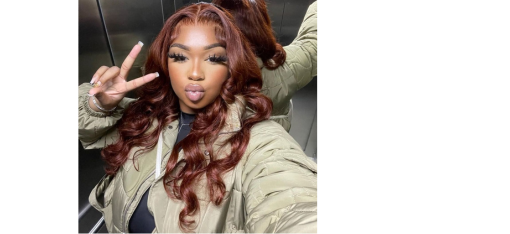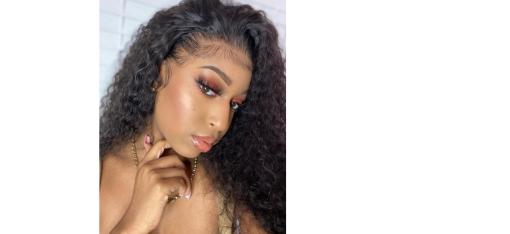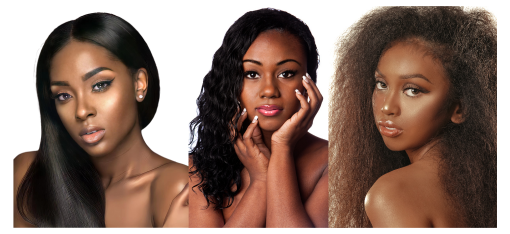Are Human Hair Wigs Ethical? Debunking Myths and Exploring Concerns (Pt. 1)
Human hair wigs have gained significant popularity in recent years as a versatile and natural-looking solution for individuals seeking to enhance their appearance. However, as their demand continues to rise, questions regarding the ethical considerations surrounding human hair wigs have emerged.
In this blog post, we will delve into the topic, debunk common myths, and explore the ethical concerns associated with human hair wigs.

Human Hair Wigs and Their Popularity
Human hair wigs are meticulously crafted using real human hair, providing wearers with the opportunity to achieve a natural and seamless look. These wigs come in a variety of styles, lengths, and textures, mimicking the diversity of natural hair. The popularity of human hair wigs can be attributed to their authenticity, high quality, and the ability to be styled just like one's own hair. Whether individuals are seeking a temporary change or require wigs for medical reasons, human hair wigs offer a viable solution.

Are Human Hair Wigs Ethical?
The main question that arises when discussing human hair wigs is their ethical implications. As consumers become more conscious of the origin and impact of the products they use, it is important to examine the ethical considerations associated with human hair wigs. This includes addressing concerns about labor practices, cultural sensitivities, environmental impact, and exploring responsible alternatives. By critically examining these aspects, we can better understand the ethical dimensions surrounding human hair wigs.
Understanding Human Hair Wigs
A. Types of Human Hair Wigs
The hair used in these wigs is carefully selected to ensure high quality and authenticity. There are various types of human hair wigs available, including full lace wigs, lace front wigs, closure wigs, and partial wigs, each offering different styles and coverage options. These wigs provide wearers with the opportunity to transform their appearance with confidence.
From one of our previous blogs, view the different type of lace wigs.
B. Reasons Why People Choose Human Hair Wigs
There are several reasons why individuals opt for human hair wigs. Firstly, human hair wigs offer the most natural look and feel. The hair strands are sourced from real individuals, allowing for a seamless blend with the wearer's own hairline. Moreover, human hair wigs provide versatility in styling, enabling wearers to curl, straighten, or even dye the wig to match their desired look. Additionally, these wigs offer durability and longevity, ensuring that the investment in a high-quality human hair wig pays off in the long run.
C. How Human Hair is Obtained for Wigs
The process of obtaining human hair for wigs varies depending on the source. Ethical suppliers work closely with hair donors who voluntarily provide their hair for compensation. Donors may sell their hair for personal reasons or as a means of income. It's important to note that reputable suppliers ensure that the hair is acquired with the full consent and understanding of the donors. The hair is collected through a careful and meticulous process to maintain its quality and integrity. Responsible suppliers prioritize transparency and traceability in their sourcing practices, ensuring that the hair is obtained ethically.
Common Myths About Human Hair Wigs
A. Myth #1: All Human Hair Wigs Come from Unethical Sources
- Clarifying Misconceptions and Addressing Misinformation
One of the most pervasive myths surrounding human hair wigs is the belief that all of them come from unethical sources. However, it is important to dispel this misconception and provide accurate information. While there have been instances of unethical practices in the hair industry, it is crucial to recognize that they are not representative of the entire market. Responsible and reputable wig manufacturers prioritize ethical sourcing and maintain stringent standards to ensure the well-being of both hair donors and the environment.
For instance Lengths By Rihze' Qire is one such company that exemplifies ethical sourcing practices. We are passionate about providing customers with human hair wigs that not only make them look and feel beautiful but also align with their values. We source our hair from ethical suppliers who prioritize fair labor practices and sustainability. This commitment reflects our belief that beauty should never come at the cost of someone else's well-being or the environment.
- Exploring the Various Sources of Human Hair
Human hair used for wigs comes from diverse sources, and it is essential to understand this to challenge the myth that all human hair wigs come from unethical sources. Some hair is sourced from donors who voluntarily sell their hair for personal reasons or as a means of income. These transactions are consensual, where individuals willingly choose to part with their hair and are compensated fairly for it. This process ensures that the hair acquisition is ethical and respects the autonomy and rights of the donors.
Another source of human hair is hair salons, where clients willingly donate their hair after haircuts. This act of donation allows the hair to be repurposed for wigs, providing a sustainable and ethical solution. Additionally, some suppliers work with religious institutions where hair is donated as part of cultural or religious practices. This form of donation is deeply rooted in traditions and is a voluntary act of giving.
By highlighting these various sources of human hair, we hope it becomes clear that not all human hair wigs come from unethical sources. Responsible wig manufacturers prioritize transparency and traceability in their sourcing practices. They work closely with suppliers who uphold fair labor practices and sustainability, ensuring that the hair used in their wigs is obtained ethically.
In the next section below, we will address another prevalent myth surrounding human hair wigs, which suggests that these wigs exploit individuals in developing countries. We will examine the socioeconomic factors involved and provide examples of responsible sourcing initiatives.
B. Myth #2: Human Hair Wigs Exploit Individuals in Developing Countries
- Examining the Socioeconomic Factors Involved
The myth that human hair wigs exploit individuals in developing countries is a complex issue that requires careful examination. While it is true that some unethical practices have occurred in the past, it is essential to understand the broader socioeconomic factors involved to provide a more nuanced perspective.
Many developing countries have a long-standing cultural tradition of hair donation, where individuals willingly offer their hair as a form of charity or as part of religious customs. This act of donation is rooted in generosity and is not inherently exploitative. It is important to differentiate between voluntary donations and exploitative practices.
Moreover, the human hair industry in developing countries can provide employment opportunities and income for individuals in communities where economic opportunities may be limited. Responsible wig manufacturers work closely with suppliers to ensure fair compensation and working conditions for workers involved in the hair collection and processing stages. By engaging in fair trade practices, these companies contribute positively to the socioeconomic development of these communities.
- Examples of Responsible Sourcing Initiatives
Responsible sourcing initiatives are crucial in challenging the myth that human hair wigs exploit individuals in developing countries. These initiatives aim to ensure that the process of sourcing human hair is ethical, transparent, and respects the rights and well-being of all involved.
One example of a responsible sourcing initiative is the establishment of fair trade practices within the human hair industry. Fair trade emphasizes fair compensation, safe working conditions, and community development. By supporting fair trade-certified suppliers, wig manufacturers can contribute to sustainable livelihoods and empower individuals in developing countries.
Another important aspect of responsible sourcing is the implementation of ethical certifications and partnerships. These certifications ensure that suppliers adhere to strict ethical guidelines, including fair labor practices and sustainable sourcing. By partnering with certified suppliers, wig manufacturers can guarantee that their products are sourced in an ethical manner.
We at Lengths, prioritize fair labor practices and sustainability, ensuring that our human hair wigs align with our customers' values. Our commitment to providing ethically sourced wigs sets a positive example for the industry as a whole.
By examining the socioeconomic factors involved and highlighting responsible sourcing initiatives, we hope to dispel the myth that human hair wigs exploit individuals in developing countries. It is essential to promote a more nuanced understanding of the industry, recognizing the positive impact it can have on communities when approached with ethical practices and responsible sourcing.
In the next blog, we will delve into the ethical concerns and considerations surrounding human hair wigs, including labor practices, cultural sensitivities, and environmental impact.
Stay tuned for an exploration of the ethical considerations surrounding human hair wigs.












Leave a comment